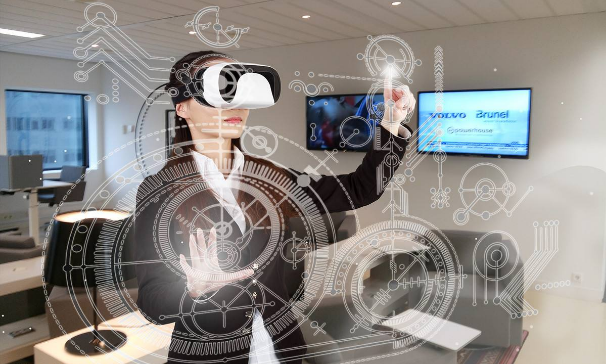|
Brain-Computer Interfaces (BCIs) have emerged as groundbreaking technological advancements that bridge the gap between humans and machines. These interfaces enable direct communication between the human brain and computers, opening up a whole new realm of possibilities for medical, scientific, and technological applications. At its core, a BCI system consists of sensors that detect brain signals, signal processing algorithms that interpret these signals, and output devices that translate them into meaningful actions. The field of BCIs has witnessed rapid progress in recent years, thanks to advancements in neuroimaging techniques, machine learning algorithms, and miniaturized hardware. One of the most promising applications of BCIs is in healthcare. BCIs hold great potential for assisting individuals with severe motor disabilities, such as spinal cord injuries or amyotrophic lateral sclerosis (ALS), by allowing them to control external devices through their thoughts. This technology offers hope for restoring independence and improving the quality of life for those affected by such conditions. In addition to healthcare, BCIs have also found applications in the field of neuroscience research. They provide researchers with a unique tool to study the intricate workings of the brain, unraveling its mysteries and enhancing our understanding of cognition, perception, and consciousness. BCIs offer insights into brain activity patterns, aiding in the diagnosis and treatment of neurological disorders like epilepsy and Parkinson's disease. BCIs are not limited to medical and research domains; they have the potential to revolutionize various industries. For instance, in the gaming industry, BCIs can enable players to interact with virtual environments using their thoughts, creating immersive and highly engaging experiences. Moreover, BCIs can enhance human performance in fields like aviation, where pilots can control aircraft systems more efficiently and effectively. Despite the tremendous progress in BCIs, there are still challenges to overcome. Improving the durability and reliability of implants, refining signal processing techniques to achieve higher accuracy, and addressing ethical concerns surrounding privacy and data security are areas that require further attention. Brain-Computer Interfaces have opened up a world of opportunities for human-machine interaction. The potential applications in healthcare, research, and various industries are vast and promising. As technology continues to evolve, BCIs hold the promise of transforming lives, enabling us to tap into the power of our own minds and reshape the way we interact with the world around us.  |
